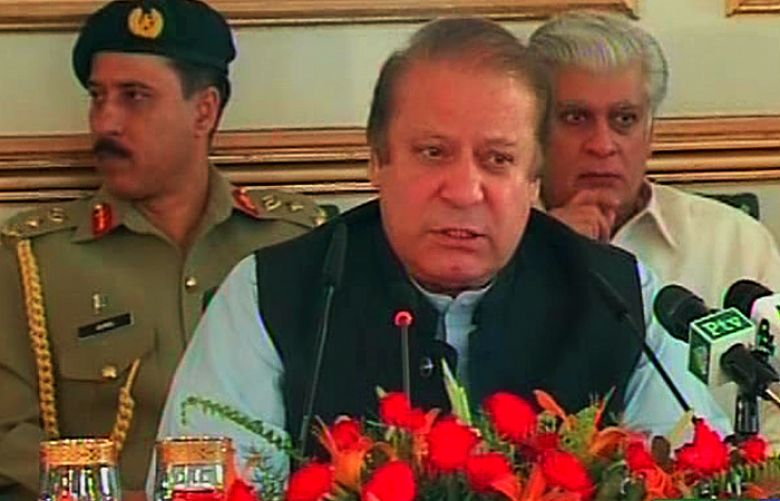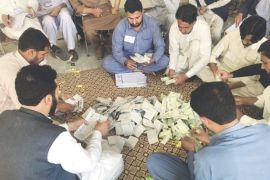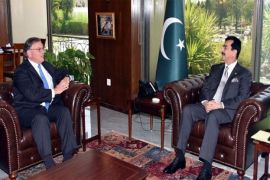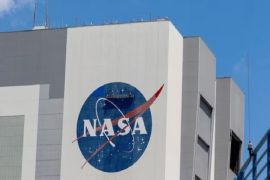Prime Minister Nawaz Sharif on Wednesday chaired a meeting in which representatives of all political parties were briefed on the proposed route of the China-Pakistan Economic Corridor (CPEC) project.
The government last month had assured political parties that Prime Minister Nawaz Sharif will soon brief them on key national issues, including the Pakistan-China Economic Corridor (PCEC), electoral reforms and rights of the provinces.
Finance Minister Ishaq Dar had said that the prime minister, after his return from abroad, would convene a meeting to take all political forces into confidence on key national issues – PCEC project, election reforms, rights of the provinces and NFC award – to develop a consensus on how to overcome hurdles in these matters.
The project is part of Beijing's “Belt and Road” plan to expand its trade and transport footprint across Central and South Asia. It will give China easier access to Middle Eastern oil via the deepwater port of Gwadar.
The project generated controversy with political leaders particularly of smaller provinces alleging that the project had been altered to benefit Punjab.
Federal Minister for Planning and Development Ahsan Iqbal on May 2 challenged politicians who had accused the government of altering the route of the CPEC to substantiate their allegations with evidence.
Addressing the convocation of the Rawalpindi Medical College in the garrison city, the minister assured that "not a single inch of the originally proposed route has been changed" and that "such baseless allegations" were not in the nation's interest.
Iqbal while addressing today's conference said that a joint coordination committee for the CPEC will be set up to facilitate the formation of working groups of experts, drawing Pakistan-China relations out of a political context and steer them towards a strong economic relationship.
The minister said, "The fundamental basis for the creation of the CPEC was to take Pak-China relations from a geo-political paradigm towards geo-economics", adding, "The aim of the MoU was to enable the government to cooperate in the planning and development of the Economic Corridor and facilitate and intensify economic activity along the corridor.
The route apparently under its original plan ran from Gwadar to Quetta, then up to Zhob before veering east towards Dera Ismail Khan.
The government was criticised for having allegedly changed this route to go straight east from Gwadar towards Khuzdar, then slightly northeast to cross the River Indus near Ratodero and connect with the road network in Sindh.
The government has however strenuously denied that any route changes were made, arguing that two routes are being pursued, and on the request of the Chinese, the second route was being built first simply because it was cheaper to do so.
At the opening of the APC, the prime minister said that political party leaders would 'go to Karachi together' to assess the situation in the wake of a sectarian attack on Karachi's Ismaili community earlier on Wednesday.
"They are peaceful people, and have always thought of Pakistan's betterment, they have an important role in the strengthening of the country ... This incident is an attempt to spread chaos."
Requests were made for the meeting to be summarised because of the horrific attack.







